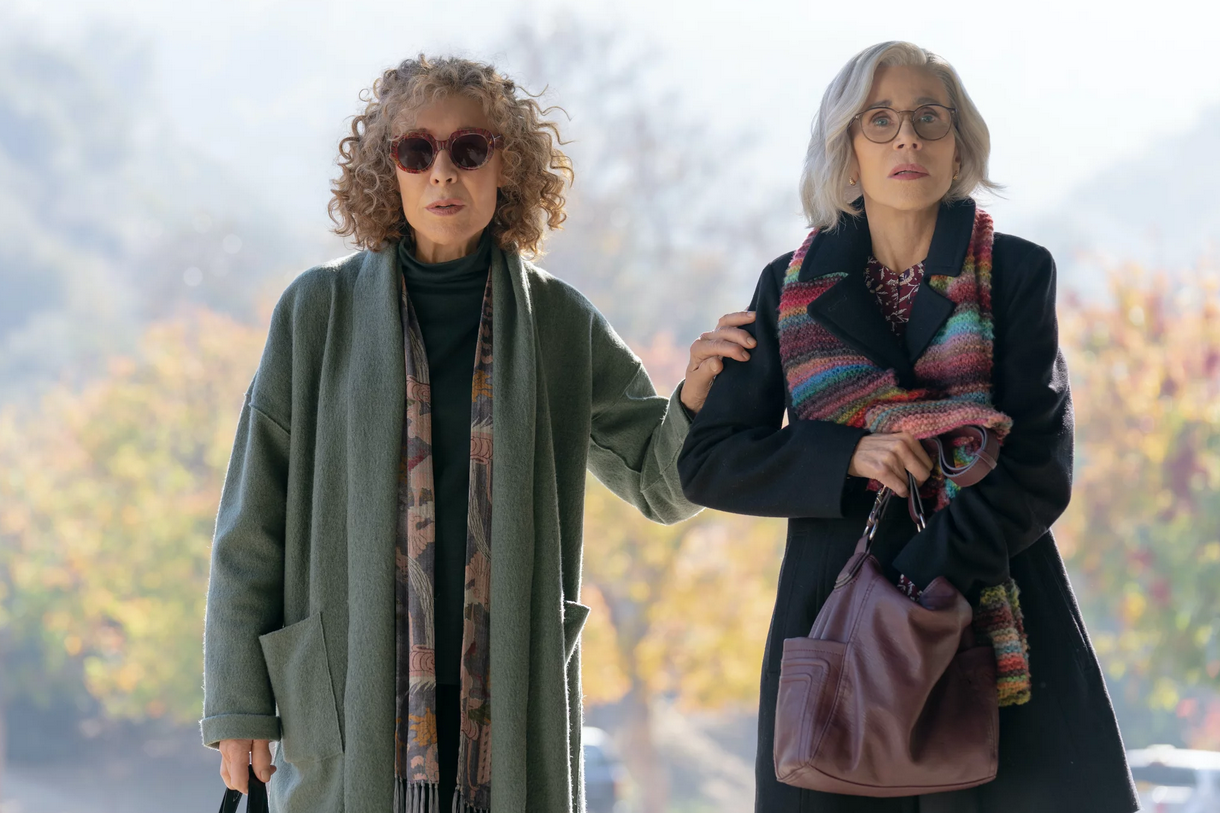MOVING ON is an adequate film that had the potential to be great
Moving On
Written and Directed by Paul Weitz
Starring: Jane Fonda, Malcolm McDowell, Lily Tomlin
Runtime: 85 minutes
In theaters March 17
by Daniel Pecoraro
trigger warning: rape, guns
“I’m going to kill you, Howard. I’m going to do it this weekend.”
Thus sets the primary tension between Claire (Jane Fonda) and Howard (Malcolm McDowell) into motion in Moving On. (It was also the nucleus of the entire film, per writer-director Paul Weitz in a post-screening Q&A.) Claire was longtime friends with Howard’s wife Joyce, who has just died–Claire and Howard’s encounter comes before her funeral. Early during Howard and Joyce’s marriage, Howard raped Claire, who only ever told her friend (and Joyce’s ex-lover during and after college) Evelyn (Lily Tomlin, in her third film with Paul Weitz after 2013’s Admission and 2015’s Grandma). Since then, Claire divorced twice (including her first husband, Ralph, played by Richard Roundtree), and Evelyn traveled the world as a cellist.
Evelyn decides to help Claire with the attempted revenge murder. After a surprisingly humorous visit to an LA guns and ammo shop, Evelyn procures a gun from another facility member, the grandfather of James (Mo Zelof), in exchange for some bacon snagged from Ralph’s fridge after a night Claire and Ralph spent together.
The murder plot doesn’t end up going quite to plan. Claire never quite gets the catharsis she’s looking for, but she is able to speak truth to her abuser and reconcile with Ralph. Most importantly, she renews her friendship with Evelyn. Weitz wrote this film to harness the chemistry Fonda and Tomlin have built together for over forty years (most recently over seven seasons of Grace and Frankie); unsurprisingly, they play off of each other skillfully. Tomlin also digs into the Ms. Frizzle-era bag of tricks in her surrogate grandmother B-plot with Zelof as James, whose time with Evelyn helps him in solidifying his identity. McDowell turns in a strong performance as Howard, presenting both the grief as a widower and the cruel refusal to come to terms with what he did.
And yet, something about the film feels a little off. The cinematography and plotting of Moving On reminded me a bit too much of Book Club (2018, dir. Bill Holderman) and Then Came You (2020, dir. Adriana Trigiani), two films that, while ultimately fun, had more of a telemovie look and feel. Not that there’s anything inherently wrong with this (I’m looking forward to Book Club 2: The Next Chapter later this year, and I’d watch Kathie-Lee Gifford pair with Craig Ferguson again any day), but it all just seemed a bit too cheap for a film of the caliber Weitz appears to strive for. Roundtree is completely absent in the film’s second act, to the point where every missed call Claire gets from Ralph feels like a call from Roundtree to tag back into the movie. It strikes me as odd that Ralph is the only Black character named, his daughter and grandsons present but almost as window dressing. Even in a women-of-a-certain-age movie, Weitz decided there still needs to be two dead lesbians (Evelyn’s two lovers). Moving On is still a strong movie, one that has the ideals of empowerment and inclusion at its core while maintaining a sense of humor and romance. However, I feel like there’s a film that would represent these goals even more strongly.


